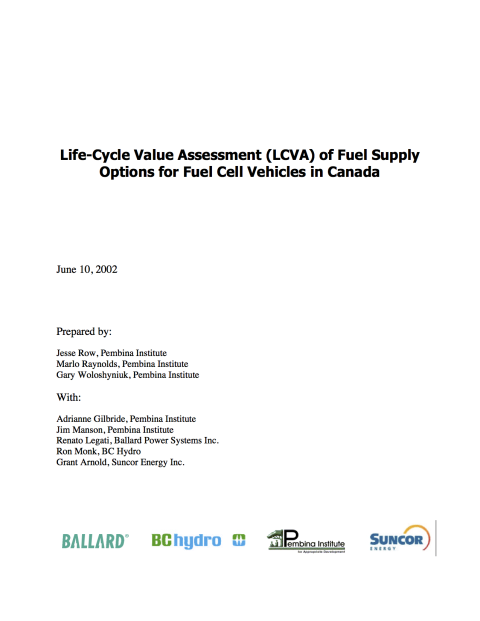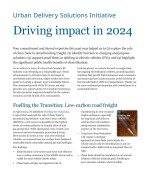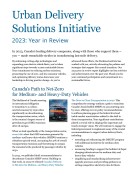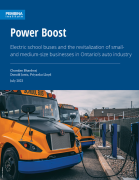The fuel cell vehicle (FCV) could revolutionize the world's transportation systems. With the potential for near-zero tailpipe emissions, greater vehicle performance, increased fuel efficiency, and lack of dependence on crude oil compared to conventional internal combustion engines, FCVs could effect a dramatic improvement in urban air quality, climate change, overall energy consumption, and energy security. However, as choices are made about sources of fuel for FCVs, it is important to consider the life-cycle performance of each option or fuel supply system, since for many fuel choices the majority of emissions occur before the fuel reaches the FCV.
This Life-Cycle Value Assessment quantifies and evaluates the life-cycle environmental and economic factors of a wide range of technically advanced options for operating automobiles and buses in Canada. The assessment also qualitatively identifies technical design challenges and improvement opportunities, along with social costs and benefits.






